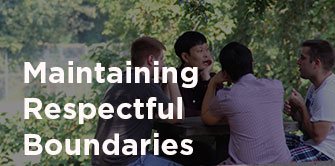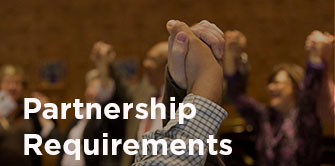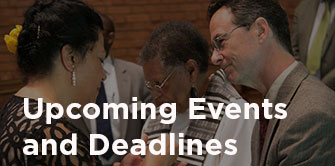Establishing A Learning Agreement:
Covenanting Together for Learning with SMART Goals
The educational value of this internship in ministry will depend to a large degree on the intern’s own initiative in structuring it intentionally as a learning experience. In this internship, an intern largely is able to design a personally beneficial “curriculum” in ministry using current experience as the primary text and by developing goals that are tailored to provide a structured way to achieve learning goals. A key vehicle for establishing this intern-initiated curriculum is through learning goals. As a place of beginning, interns are encouraged to use the S.M.A.R.T. goal guide. Sharing the results with and working together as a learning team ensures that the forming goals and the ministry work increase the intern's potential for learning and developing skills.
A typical learning agenda will have three goals. These specific objectives should be linked with actual ministry activities.
Instructions, guidelines and examples are provided in the PM&M Handbook (under #6 with examples under #11). The guide for this process is in Learning Goals Guidelines. Meet with your learning team explore what the site has to offer as you create your learning goals. Also, the S.M.A.R.T goal guide can assist in forming learning goals.
Seminarian interns are responsible for crafting these learning agendas in consultation both with their learning partners in their contexts of ministry and with their fellow participants in the PM&M Colloquies. Seminarian interns are given specific instructions in their syllabi about providing final forms of these learning agendas to their colloquy leaders during their internships.
Each of the three learning partners can bring particular insights to bear on the task of constructing a Learning Agreement:
1. Seminarian interns know best what they want to learn or need to learn. They have the best understanding at any given moment in time concerning their discernment of a call to some kind of ministry. They know best their gifts for ministry and strengths for service (which might not need to be framed as learning goals) and their growing edges (which might make excellent learning goals).
2. Clergy/mentoring learning partners know best the opportunities for ministry and learning that are offered within their parishes, agencies, nonprofits, and communities. Where are there particular opportunities for engagement, service, or learning? This is not to ask what the partner has to teach the intern from the partner's wealth of experience. This is also not to ask what jobs need to be done. It is instead to identify the special opportunities within the congregation or nonprofit for the intern to personally experience ministry work and to learn from that experience.
3. Lay/site learning partners: The design of these learning partnerships is not an apprenticeship. Seminarian interns are not simply learning from their clergy or mentoring learning partners, they are learning in broader conversation with those who provide ministry in a variety of ways, and those who are recipients of ministry in a variety of forms. This is why it is important to have an insightful individual on the learning partnership in addition to the clergy/mentoring learning partner and seminarian intern. This person can bring a different voice and needed perspective into their theological and leadership reflection together.
*PM&M documents may refer variously to “learning goals,” learning agenda,” “learning agreement,” and “learning covenant.” Unless particular clarification is given, these may be understood as synonymous.
The PM&M faculty and staff are available to advise and assist you with all aspects of the PM&M program. The PM&M office is located at Wesley's main campus in the Kresge building, office suite K-107. Please feel free to contact us.
Dr. Doug Powe
PM&M Director
DPowe@WesleySeminary.edu
Rev. Debra M. Whitten
PM&M Program Administrator
PMMAssistant@WesleySeminary.edu



